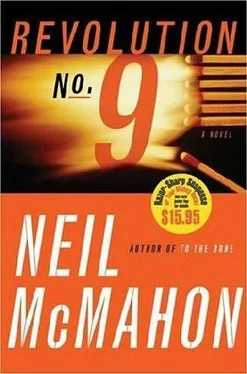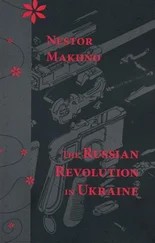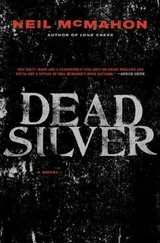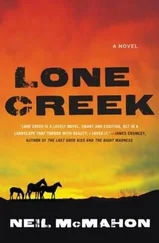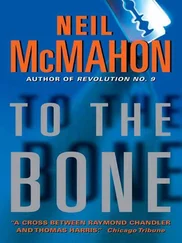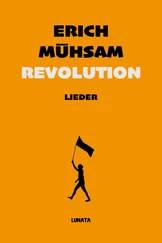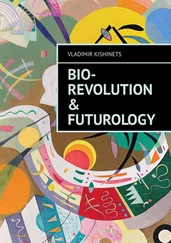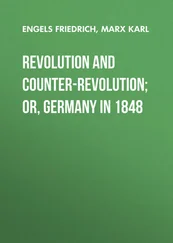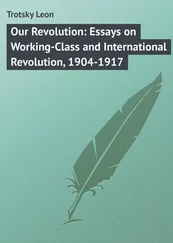The first diagnostic tick registed in his brain-acetone. Ketoacidosis?
“Can you tell me what’s hurting you, Mandrake?” he said. “Your head? Tummy?”
Mandrake did not respond.
But his mother suddenly said, “Hi,” in a cracked, sleepy voice.
Monks waited, thinking she was going to tell him something. But she only watched him with vague eyes, then looked around the room as if trying to remember where she was. Such a heavy sleep-especially in a mother with a sick child-suggested sedation.
“He’s had tummy aches,” Marguerite said. “He’s been throwing up.”
“Every kid has tummy aches and throws up,” Freeboot muttered. He stomped around with a few agitated steps, then subsided.
“Anything else?” Monks asked.
“He’s pissing the bed again,” Freeboot said. “After we broke him of it a year ago.”
“Drinking lots of water?”
“Yeah.”
“How long has this been going on?”
“He started acting weird a couple of weeks ago,” Marguerite said.
“Acting weird how?”
“Just weird,” she said defensively. “He looked sick. Didn’t want to go out and play.”
Freeboot snorted in derision. “He’s just scared of the bad weather.”
Monks lowered the covers from Mandrake’s chin down to his waist and lifted up his pajama top. His fingers felt the padded waistband of a diaper.
“I’m just going to touch your tummy for a second, Mandrake,” he said. “It won’t hurt, I promise.” Monks gently massaged the abdomen, feeling for lumps or abnormalities, and continuing his covert check for signs of abuse. So far, there hadn’t been anything obvious. At least it did not seem that the child had been actively harmed.
Mandrake only continued to watch Monks apathetically. Most kids that age would have squirmed, cried, had to be restrained by a parent or a nurse. Such passivity would have been a dangerous enough sign in an adult. In a child, it was chilling.
Monks gently pinched a fold of skin between his thumb and forefinger. The skin felt thin, without turgor, its usual rubbery quality. When he released it, it didn’t snap back flat, but subsided only gradually, like a slowly collapsing tent.
Along with the smell of acetone, that was the second solid bit of diagnostic information.
“Has he been eating?” Monks asked.
“Like a little pig,” Freeboot said, with an air of triumph. “Now you tell me, would he be doing that if he was really sick?”
Monks’s jaw tightened, his anger moving another notch toward the red zone. It was hard to imagine that anyone could ignore the fact of a child eating desperately, but shrinking to skin and bones. And yet, Monks had seen similar neglect many times.
He pulled the pajama top back down and tucked Mandrake in again.
“Okay, Mandrake,” he said. “I’m going to talk to your dad. I’ll be back to visit you again in a little while.”
Monks patted the boy’s shoulder, stood, and motioned with his head for Freeboot to leave the room with him. It was an automatic gesture, developed over many years of being in charge at a patient’s bedside. But he saw Freeboot’s eyes narrow, and realized that even this tiny assertion registered as an insult to his authority.
Freeboot turned his back and pushed through the curtain, leaving Monks to follow.
“Freeboot thinks it’s all in his head,” the mother said, from her bed. Apparently, she was starting to grasp what was happening. “Like, you know, he wants to be sick.”
“Freeboot’s wrong,” Monks said curtly.
“Do you know what it is?”
He shook his head, although in truth, he had a pretty good idea.
He stepped out through the curtain. Marguerite was lingering outside the room.
“What kind of drugs is she on?” he asked, pointing back toward the woman in bed. If she had borne or breast-fed Mandrake while using-or had contracted HIV or hepatitis-that could add an ugly complication.
“Motherlode? She’s heavy into ’codes.” This was slang for oxycodones-synthetic opiates.
“For a long time?”
“She always messed around with them. This last year or so, she’s been pretty much out of it all the time. She just lays around.” Marguerite’s resentment was clear. “Freeboot won’t let her sleep with Mandrake, because he says she’ll roll over on him and smother him.”
It was a tender sentiment for the mother of one’s child.
“Who takes care of him?” Monks asked.
“Me, most of the time.”
“When’s the last time you saw him drink water?”
“Just a little while ago,” she said. “I checked up on him as soon as we got back.” Her gaze faltered, and Monks was tempted to finish the sentence aloud-from kidnapping you at gunpoint.
“It’s very important that he keeps it up,” Monks said. “At least a couple of glasses every hour. Try to give him some more now. If he won’t drink, tell me immediately.”
As he spoke the words, he realized, with a mix of helplessness, anger, and fear, that he was involving himself, even assuming responsibility. But right now, keeping that little boy alive was what mattered more than anything else.
Monks walked on into the lodge’s main room. Freeboot was standing in its center like a presiding judge, somber, arms folded, with Shrinkwrap, Taxman, and Hammerhead as the jury.
“Mandrake needs immediate hospitalization,” Monks said.
The room’s attention turned to Freeboot, with gazes shifting, openly or covertly, to watch his reaction. He remained poker-faced.
“What’s the matter with him?” Freeboot demanded.
“I’d need a lab report to tell you.”
“Then how do you know he should go to a hospital?”
“First off, he’s dehydrated to a life-threatening degree,” Monks said. “That’s why he’s drinking so much water. His body’s trying to stay up with the need. But he’s passing it faster than he can take it in. The only way to replace it at that rate is by IV.”
“We’re not going to hook him up to any of that shit.”
“Hooking him up to ‘that shit’ will keep him alive,” Monks said. “There are other problems, too. You said he’s eating a lot, but he’s losing weight, right? With nausea and vomiting? A normal kid that age is a bundle of energy, but he’s lying there like an old man. He needs a thorough workup by specialists, and he needs it now.”
Freeboot shook his head. “Not for Mandrake.”
“Why not?” Monks said. “Is it money? I can get you help. I’ll pay for it myself, if it comes to that.”
“We got money,” Freeboot said, with clear condescension.
“What, then? Are you worried about the police? We can keep them out of it.”
Freeboot shook his head again, this time impatiently-the gesture of a man wasting his breath on someone too dense to understand. Then his forehead knotted with worry, as if his own pain was showing through. Monks couldn’t tell if it was genuine or purely a performance.
“I want what’s best for him,” Freeboot said. “But it’s complicated. This is all about faith.”
Monks wasn’t surprised to find an element of religion woven into this. He had encountered a number of people who resisted medical care for religious reasons, and he knew of instances where it had resulted in death-too often, the death of a child.
“I’d be glad to hear about your beliefs some other time,” Monks said. “But don’t tell me you’d let your son be a martyr to them.”
“I didn’t say beliefs. I said faith. There’s a difference.”
“I’ve got plenty of respect for faith,” Monks said. “But it wasn’t faith that built the truck that brought me here, or the guns you’re holding me with. It was reason. And so is medicine.”
Freeboot’s gaze turned appraising, as if to concede that Monks might be worth taking seriously, after all.
Читать дальше
